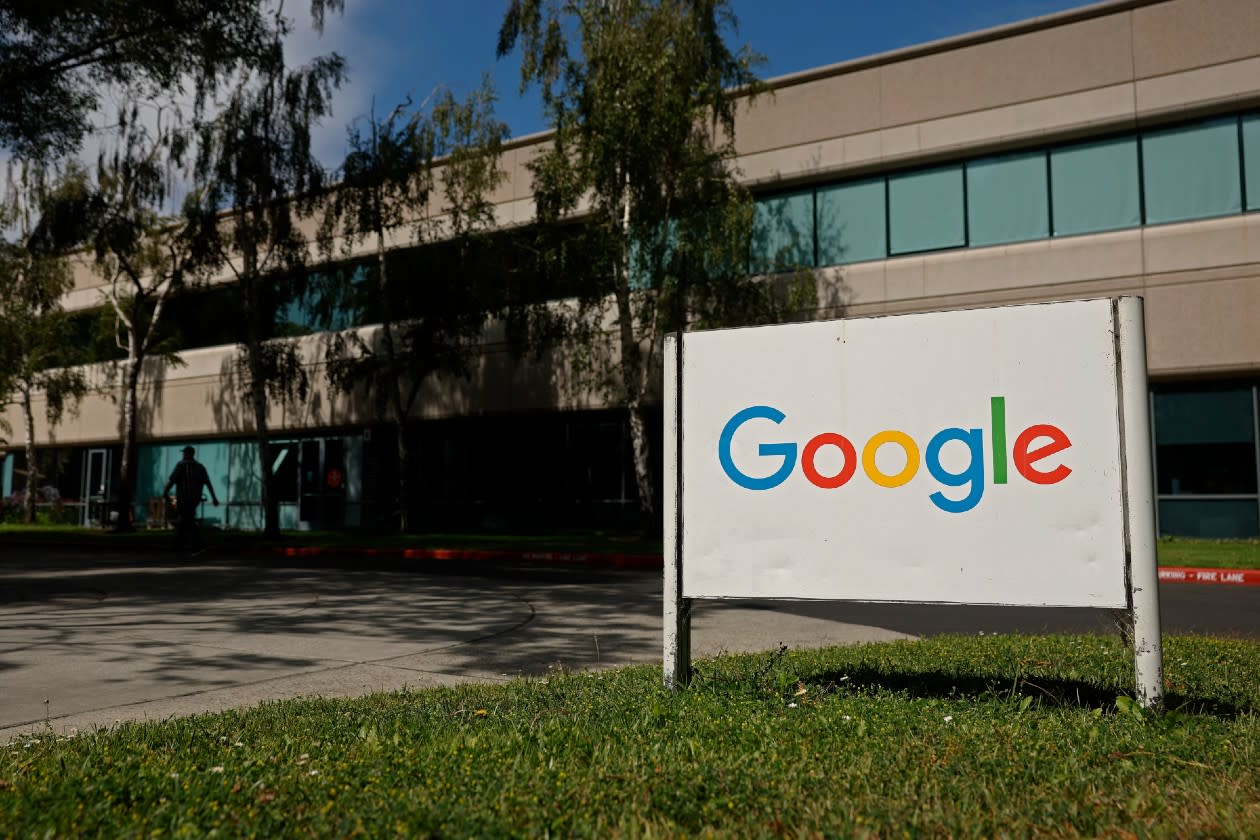Alphabet reported a 13% rise in second-quarter revenue, ignoring currency moves, to $96.4bn ($94.0bn expected).
The core advertising business, which includes Google Search and YouTube, saw revenue rise 10% to $71.3bn ($69.6bn expected). Google Cloud revenue was up by 32% to $13.6bn ($13.1bn expected).
Operating income rose 14% to $31.3bn ($31.2bn expected), with margins at 32.4%.
Free cash flow was down 61% to $5.3bn as AI investment ramps up. There was a net cash position of $71.5bn at the quarter end.
The company increased capital expenditure plans, expecting to invest around $85bn in 2025.
The shares were up 2.1% in overnight trading.
Our view
Alphabet is slowly proving the doubters wrong. This was another strong quarter, with Google Search growth looking robust and strong margin expansion helping profits top expectations. This won’t fully dispel fears that new entrants like ChatGPT could upend its search dominance, but Alphabet's own AI initiatives are taking shape.
The rise of language models presents both an opportunity and risk for the search business. Google search has long been the gatekeeper to the internet, but competition is heating up, and Alphabet faces a genuine challenge of adapting its search proposition to retain that dominance.
The strength of Google search in recent quarters is a sign that AI is already delivering incremental improvements. AI overviews are rolling out to more users, and the numbers back up commentary that engagement is improving. Advertisers are still getting bang for their buck – which was previously a concern.
There have been question marks on whether tariff and trade drama will impact the ad revenue world, but any impact has been limited so far. Broadly speaking, we think Alphabet looks relatively insulated, though a full-scale recession would be bad for everyone.
Beyond its dominant search presence, Google benefits from a wide array of high-quality businesses, with its cloud division the key growth engine. Significant infrastructure investment is being made to meet rising demand for computing power, and with demand still outpacing supply, there's a good pipeline of revenue visibility heading into 2026.
It has the cash flows to stomach the increased investment, but over time, it will lead to higher costs passing through the income statement. The expected hit to margins hasn’t come yet, with impressive efficiency improvements doing their job.
Regulatory scrutiny is adding another layer of complexity to the story. We tend to lean on the more optimistic side here, with markets simply looking for some clarity, even if that means spinning out something like the Chrome browser (which we see as a low chance).
On paper, Alphabet has all the right tools to lead in AI, from cutting-edge models to mass distribution. Yet the market seems to have prematurely written Alphabet off as a loser in the AI race, a view that feels both short-sighted and overly pessimistic.
That said, until there's more confidence that AI integration won’t cannibalise core search revenue, and some clarity around ongoing legal battles, there’s enough uncertainty to cap near-term upside.
Environmental, social and governance (ESG) risk
The technology sector is generally medium/low risk in terms of ESG, though some segments are more exposed, like Electronic Components (environmental risks) and data monetisers (social risks). Business ethics tend to be a material risk within the tech sector, ranging from anti-competitive practices to intellectual property rights. Other key risks include labour relations, data privacy, product governance and resource use.
According to Sustainalytics, Alphabet’s overall management of material ESG issues is average.
Monopoly and market dominance concerns are a key regulatory risk. It remains the subject of antitrust investigations in several countries, leading to calls from both EU and US regulators for the breakup of its online advertising business. Alphabet’s management of data handling is strong, aided by its deep pockets. But this remains a key risk to monitor in the evolving landscape of AI.
Alphabet key facts
All ratios are sourced from LSEG Datastream, based on previous day’s closing values. Please remember yields are variable and not a reliable indicator of future income. Keep in mind key figures shouldn’t be looked at on their own – it’s important to understand the big picture.
This article is not advice or a recommendation to buy, sell or hold any investment.No view is given on the present or future value or price of any investment, and investors should form their own view on any proposed investment.This article has not been prepared in accordance with legal requirements designed to promote the independence of investment research and is considered a marketing communication.Non - independent research is not subject to FCA rules prohibiting dealing ahead of research, however HL has put controls in place(including dealing restrictions, physical and information barriers) to manage potential conflicts of interest presented by such dealing.Please see our full non - independent research disclosure for more information.


